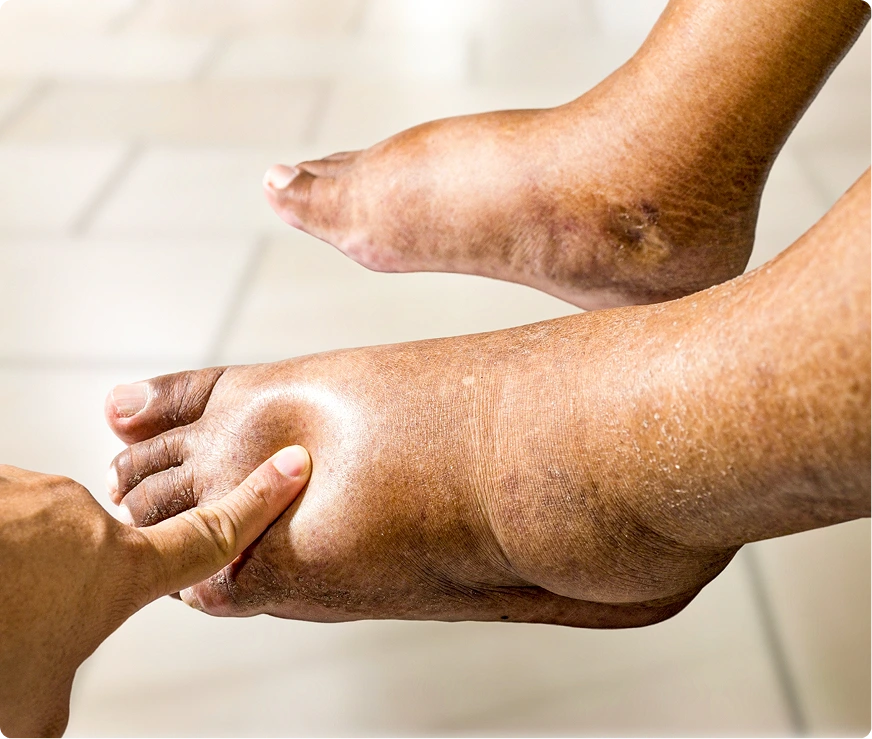Diabetes can lead to nerve damage, poor circulation, and slow-healing wounds that put the feet at high risk for infections and ulcers. Without proper care, even small cuts or blisters can progress into serious complications that threaten mobility and overall health. Many patients seek diabetic foot treatment to manage pain, prevent infection, and improve wound healing, ensuring their feet remain healthy and functional.
Foot HealthCare Associates provides comprehensive diabetic foot care in Novi, Southfield, Howell, and Livonia, MI, combining advanced treatments with preventive strategies to protect foot health and help patients maintain an active lifestyle.
Foot problems are a big risk for diabetics. Diabetics must constantly monitor their feet or face severe consequences, including amputation.

Another way is the bone condition Charcot (pronounced “sharko”) Foot. This is one of the most serious foot problems patients can face. It warps the shape of the foot when bones fracture and disintegrate, and yet the patient continues to walk on it because it doesn’t hurt. Diabetic foot ulcers and early phases of Charcot fractures can be treated with a total contact cast.


Regular care and timely treatment are key to maintaining healthy feet for individuals with diabetes. By addressing underlying issues, such as nerve damage, poor circulation, and wounds, patients can avoid complications and improve overall comfort and mobility. Benefits of diabetic foot treatment:

